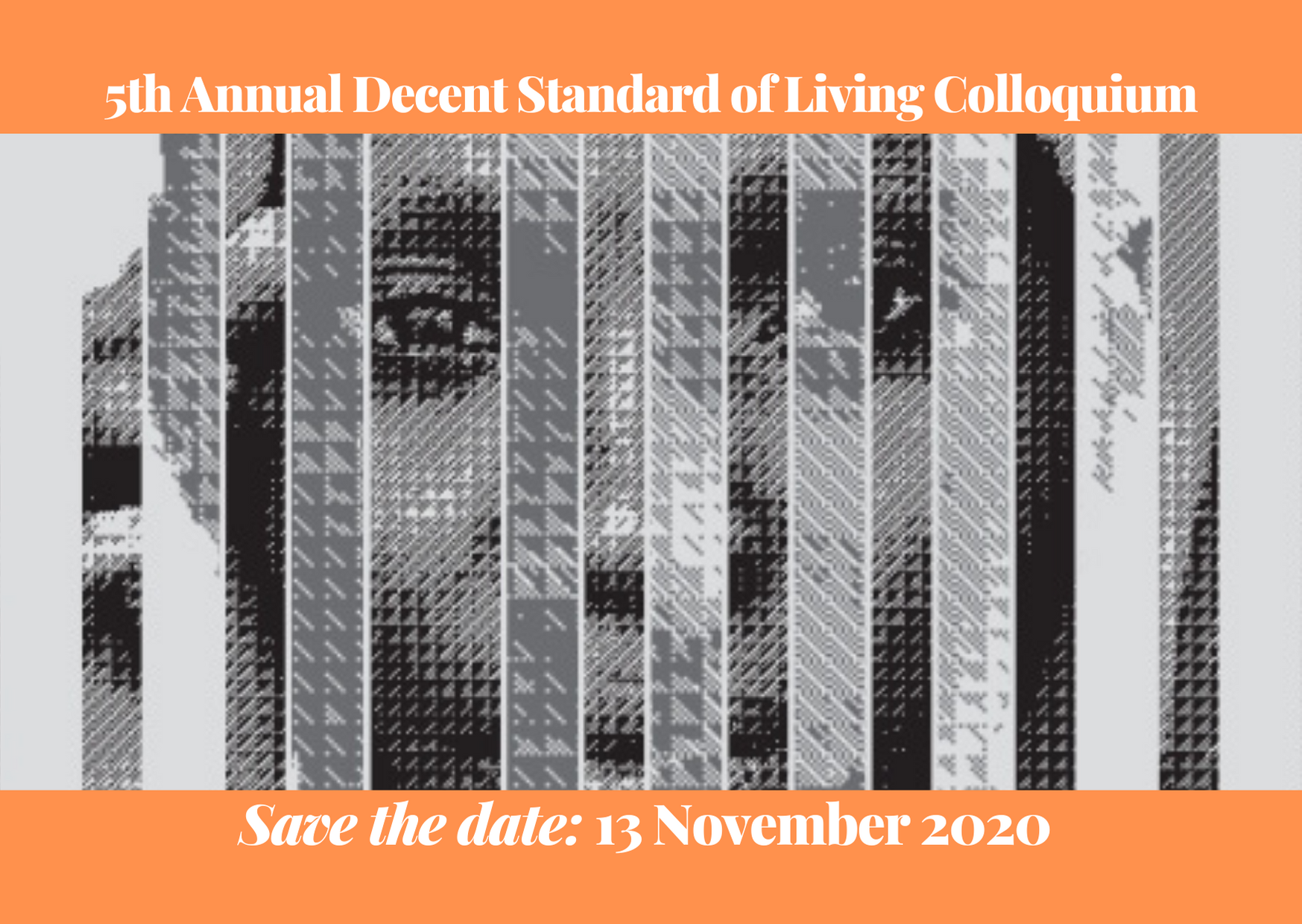A Webinar on a decent standard of living and the importance of multidimensional poverty measurement in the Covid-19 recovery of South Africa
Studies in Poverty and Inequality Institute (SPII), in partnership with Friedrich-Ebert-Stiftung (FES) and UNICEF, is hosting the 5th annual Decent Standard of Living Colloquium on November 13 to discuss the critical importance of applying multidimensional understandings of poverty and exclusions.
“The impact of Covid- 19 has had a dramatic impact on the rise of poverty in South Africa and globally. Adopting the right analytical tools to tackle poverty will determine if the full national economic and social recovery plans will succeed or fail,” says Isobel Frye, Director of SPII.
“Poverty will otherwise destroy South Africa’s democratic dreams if we do not urgently prioritise its eradication. Poverty eradication is always seen as an add-on by policymakers. This is why our growth has been so constrained. Poverty is a cause of economic stagnation, not a consequence. Understanding this in its multiple dimensions is essential for our national development and reconstruction plans to succeed,” Frye said.
The Decent Standard of Living as developed by SPII and its research partners, Southern African Social Policy Research Institute (SASPRI) and Labour Research Service (LRS), funded by the Department of Social Development, is at the cutting edge of global studies. Its innovation lies in the fact that ordinary South Africans have decided what a decent standard of living should be, not removed social scientists or economists.
SPII welcomes UNICEF SA to the team this year. Ms Christine Muhigana – Unicef’s South African Country Representative, had the following to say:
“UNICEF is committed to ending poverty. It believes that the best way to do this is to work with interested parties in government, civil society and the private sector. UNICEF understands poverty to be a multifaceted issue and urgent interventions are needed to secure sustainable income for vulnerable families and children. This requirement has become more urgent during the coronavirus pandemic and everyone should redouble their efforts to ensure that no child goes to bed hungry. Furthermore, given the different needs of children of different ages, access to crucial nutrition, health, education, and child protection services is vital to ensure that children survive, develop and thrive. This is not the time to withdraw investment in children’s well-being and development and everyone should work together to ensure the realisation of children’s social and economic rights.”
The prevalence and depth of poverty in South Africa today is of such a critical level that public thought and activism is vital to go beyond the specialist scientific domain. Much incredible work has been done by the academic community in South Africa on both poverty and inequality, in their various forms. What SPII, UNICEF and their active partners seek to do is to provide platforms for this information to be digestible in simple, but not simplistic, representation.
“Civil society’s ongoing calls for the expansion of social grants through a Basic Income Grant seem unable to find traction in some circles of government. This flies in the face of the NIDS CRAM poverty data released three weeks ago. The reluctant expansion of the Social Relief of Distress Covid-19 grant for a mere three months announced last week is evidence of a short-sighted rejection of empirical data, at our peril”, continued Frye.
October 19 was international Poverty Day and October is the month in which the South African state is required to report to the UN Committee on Economic, Social and Cultural rights on its progress in reducing socio-economic deficits.
According to Dr Mbuso Moyo, Programme Manager for The Friedrich Ebert Stiftung (FES) South Africa Office: “Together with SPII, the FES organises information and discussion events on the introduction of the Minimum Wage Act. FES’s funding of this year’s colloquium, which looks into the multi-dimensional nature of poverty, is a continuation of its partnership with SPII to support the latter’s work in advancing social and economic justice through research and social dialogue. These colloquia are important as they provide a platform for a cross-pollination of ideas between FES’s partners in the academy and amongst organised labour and other social justice actors.”
Partners for this project include UNICEF, Southern African Social Policy Research Institute (SASPRI) and Labour Research Service (LRS).
Given the challenges of Covid-19, the colloquium will be held as a webinar this year on Friday November 13 from 10:00 to 13:00.
MEDIA QUERIES:
BUZ Consultants
Bridget van Oerle and Sneziwe Dube | 0832636991 / 0733394333
RELATED RESOURCES:
> Towards a decent life for all – Decent Standard of Living Index (Final Report)


Recent Comments